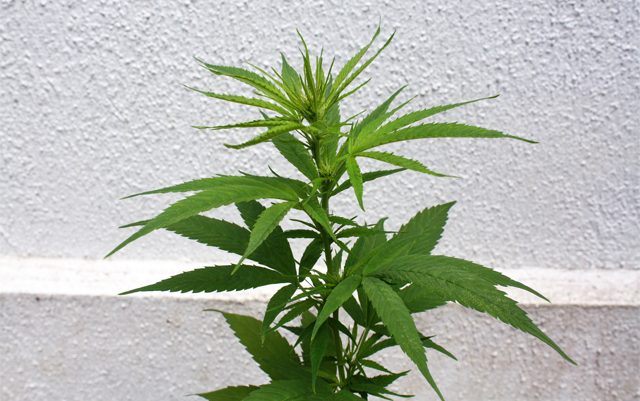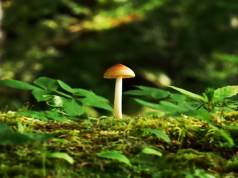While it may not be known to many, the truth is that Cannabis, also known as the Marijuana plant, has been cultivated for its medicinal, physical, and psychoactive properties for thousands of years.
Old records say that the first medicinal use of the cannabis plant could date back to 2000 BC when the then emperor of China Shen Neng drank marijuana tea to treat various ailments like poor memory, gout, malaria, etc.
Many years later in the 19th century, William Osler, considered to be a “Father of Modern Medicine”, stated that he believed that the cannabis plant could effectively treat migraines.
And in 1940, Dr. Roger Adams and his team at the University of Illinois discovered the miracle potion – CBD. But the criminalization of marijuana in the US in 1969 halted the research work on the plant and its medicinal uses.
Anyway, the good news is that some countries around the world and some states in the US are on the verge of decriminalizing its use, owing to the medicinal benefits of cannabis that have recently been discovered through various research.
And after a lot of focus on THC, attention was finally paid to CBD – something that doesn’t get you high and yet makes you feel better.
How Does CBD Work In Our Body?
The marijuana or the hemp plant are the sources of deriving cannabis. According to research, three types of biomolecules are present in cannabis: terpenoids, flavonoids, and many types of cannabinoids. Cannabinoids are active chemical compounds found in cannabis plants.
Cannabinoids derived from plants like hemp are Phytocannabinoids. It can interact with our body’s natural systems and bring about a healing effect. Cannabinoids that are synthesized on demand by the human body are endocannabinoids.
Both phytocannabinoids and endocannabinoids influence the cannabinoid receptors in the body to maintain a balance. There are over 100 phytocannabinoids present in cannabis plants.
But the two that are most abundant are cannabidiol (CBD) and tetrahydrocannabinol (THC). And while THC does not have many therapeutic properties, some research shows that CBD has anti-inflammatory, analgesics, and soothing properties.
It has also been noticed that THC induce adverse psychoactivity if the dosage is too high, whereas CBD can reduce the psychoactivity caused by THC. CBD works by not interacting directly with the ECS (Endogenous cannabinoid system) and establishing a minimal binding affinity to CB1R (CNS-cannabinoid receptor) or CB2R (peripheral cannabinoid receptor).
However, it does influence some endocannabinoid molecular signaling systems, ion channels, and receptors.
The body metabolizes CBD through hydroxylation to form acidic metabolites. This ensures that CBD can be administered in high doses without any side effects.
So, while CBD and THC are both phytocannabinoids, there exist a few major differences between the two. Here’s a list.
- THC is the phytocannabinoid that can cause a high. But CBD does not have any euphoric side effects. It is also free of side-effects and thus, suitable for people of all ages.
- THC binds with the brain’s receptors (CB1 receptors). But CBD does not bind directly to any receptors in the body.
- CBD does not have any side-effects, even when administered in large doses. But THC has temporary side effects, like increased heart rate, red eyes, memory loss, etc.
Both CBD and THC are effective in treating various medical conditions. But many prefer CBD over THC because it does not give you a high and is free of side effects as well.
Can you Build Tolerance On CBD?
Many drugs can often become dangerous over time because the body builds a tolerance to them.
But no, that is not the case with CBD.
You must be wondering why…well, we are here to answer this question.
Well, before we discuss CBD tolerance, let us understand why tolerance happens.
Tolerance happens because of the brain and the liver – the brain receptors that are involved decrease and so does their ability to bind efficiently. And the liver has to work harder to metabolize that particular substance each time it is consumed.
But CBD does not bind directly to any of the receptors in the body, and so, the users do not build any tolerance.
CBD is known to have reverse tolerance effects – which means that over time, you might feel like you need smaller doses of CBD, but still receive the same benefits.
Addiction and Overdose
The little study that has been conducted on CBD states that it is not toxic and has very little to no side effects.
So, CBD is completely safe to use.
A recent report of the National Cancer Institute states that it is impossible to overdose on CBD. The report states, “Because cannabinoid receptors, unlike opioid receptors, are not located in the brainstem areas controlling respiration, lethal overdoses from Cannabis and cannabinoids do not occur.”
Also, to date, there have been no known reports of death caused by an overdose of CBD products.
The National Cancer Institute report also states that CBD products are also way less addictive than many other drugs, including prescribed ones available in the market today.
However, it is recommended that you take only the amount prescribed in the CBD bottle.
Does This Mean CBD Is Safe?
Feedback from CBD users and studies show that CBD is non-toxic and safe to use. It does not have any mind-altering effects and also does not have the serious side-effects of THC and other drugs.
Perhaps that is the reason why the FDA has approved two pills made with Cannabinoids that are used to treat seizures and for nausea and vomiting caused by chemotherapy.
However, taking too much CBD than required can cause nausea, vomiting, diarrhea, dry mouth, and various other symptoms, which might not be life-threatening but can cause temporary discomfort.
It is also important to buy original CBD products from reliable brands that provide third-party test results, the ingredients used, and their manufacturing process details.
Always select organic CBD products that are free of additives, pesticides, synthetic components, and other harmful ingredients.
This way you will not only be able to reap the benefits of CBD but also know that your product is absolutely safe for consumption.
Disclaimer: This article is intended for information and entertainment purposes only and is not intended to reflect the specific views of the publication.






